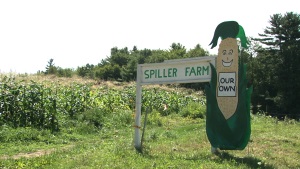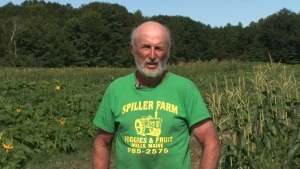Mainers Feeding Mainers is providing fresh, local foods to hunger relief agencies throughout the state – and it’s showcasing the power of collaboration in the process.

The state of Maine is rich with natural resources, including the fertile land and full sea that together form the foundation of our productive and growing agricultural industry. Given the bounty that surrounds us each harvest season, Good Shepherd Food Bank decided to take advantage of our local resources and form the Mainers Feeding Mainers program in 2010.
Each year, we develop purchase agreements with our farm partners, committing to buy certain crops from them. Because we enter into contracts with farmers before the growing season, we’re offered low prices on crops and can leverage our resources to acquire more food.
2013 Growing Season:
- 450,000 lbs. of local produce purchased
- 500,000 lbs. of local produce donated
- TOTAL = 950,000 lbs. of local produce distributed
All of our partner food pantries and meal sites have access to Mainers Feeding Mainers produce at no cost. While the local products are available at the Food Bank’s three distribution centers in Auburn, Brewer, and Biddeford, many farm partners have also formed direct relationships with their local pantry. As more pantries begin to pick up food at local farms, community relationships are strengthened and food goes to families in need while it’s at peak freshness.
“The Mainers Feeding Mainers program is creating business solutions to seemingly intractable social problems. It’s creating economic prosperity for our farms by contracting with them to grow food, and it’s creating a lifeline to that food for people who have no other place to get it, but from the food pantry.” –Gray Harris, Director of Sustainable Agriculture, CEI

“I think it’s important for everyone – farmers and others – to participate in helping out the less fortunate. I realize that we all may be in need at some time in our life, so I think that those of us who are more fortunate should do what we can to help those who need it.” Bill Spiller, Spiller Farm